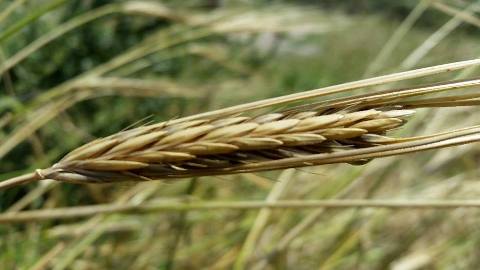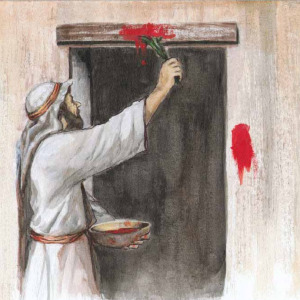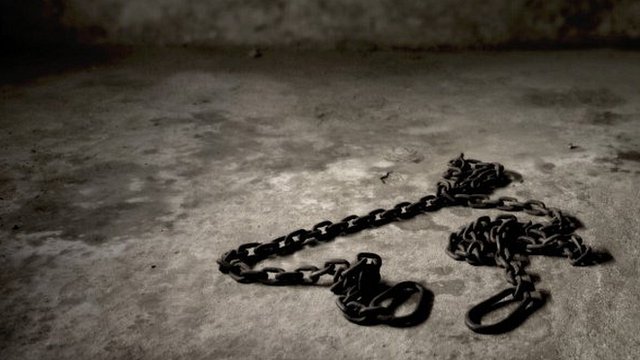Finally, after all of these years of trying to observe the feasts, I am getting down to the nitty gritty of really studying them out and taking cohesive notes. Over the past several years, we would practice in this way, then in that way, and each time I would feel like I didn’t really know what I was doing. I would miss dates, have a lack of understanding as to not only what I felt that I should be doing, but also why. But this year, I have really taken the time to resolve this. As a record of all that I have learned for myself I have decided to write out a Feast Series. For me, it makes sense to start with feast we will be celebrating next – Passover.
Before beginning, I think it is important to realize that we have been so far removed from the period in time when these feasts were given to us that it is difficult for anybody to observe them “correctly.” Since the very first time these feasts were observed the temple has been destroyed and sacrifices have been made impossible, there was a scattering of the people into Babylon that brought in outside influences and caused some of the tradition to be lost and/or changed, and then another scattering into the world which produced more of the same. What I am including in this series is the bare-bones of what scripture says. I will not be including extra traditions (that doesn’t necessarily mean that I think added traditions are wrong) or much in terms of a ‘spiritual meaning’ behind the feasts (those may come in later studies). What I hope to present is the date in which the feasts were observed, the first time each feast is mentioned and what it may have looked like, why the feast was given to us (in terms of both past and future events), and how our family will be observing it in the coming season. (The way we observe each feast is likely to change here and there each year.)
In the first month, on the fourteenth day of the month at twilight, is YHVH’s Passover.
Leviticus 23:5
The first feast listed in Leviticus 23 is Passover, and the only information we are given is the date. Today we have two calendars that are commonly used – our Gregorian calendar (January through December) and the Rabbinical calendar (a calendar created after the destruction of the temple and another dispersion of the people of Israel.) Before then, the calendar that was followed was determined by the heavens and the earth. In order to explain this, we need to go to an earlier time – to the very first Passover.
YHVH said to Moses and Aaron in the land of Egypt, “This month shall be for you the beginning of months. It shall be the first month of the year for you… Then Moses said to the people, “Remember this day in which you came out from Egypt, out of the house of slavery, for by a strong hand YHVH brought you out from this place…Today, in the month of Abib, you are going out.
Exodus 12:1-2, 13:3-4
The first month of the year, as appointed by YHVH is the month of aviv (Abib). Would you believe that the word aviv actually is not the name of a month?
אָבִיבʾabiyb, aw-beeb´; from an unused root (meaning to be tender); green, i.e. a young ear of grain; hence, the name of the month Abib or Nisan:—Abib, ear, green ears of corn
Through this definition, we understand that aviv/abib is the condition of a young ear of grain. It is an agricultural term. While this definition says corn, we need to look a little more closely to find out exactly what grain is being discussed in our story. Let’s go back just a little further.
(The flax and the barley were struck down, for the barley was in the ear [aviv] and the flax was in bud. But the wheat and the emmer were not struck down, for they are late in coming up.)
Exodus 9:31-32

During this time of year, the barley is making its appearance on the earth. It is young and is “in the ear” or aviv. – almost ready to harvest. The month of aviv, then, is the month in which barley becomes ripe. So by looking at things on earth, (the condition of the barley) we are able to determine when the first month of the year is, but how was the beginning of this month determined? (The first day needs to be known if we want to know when the fourteenth day is.) The first day of every month was determined in the same way. In order to explain this, I am going to use some instructions about a later feast day – the day of trumpets.
“On the first day of the seventh month you shall have a holy convocation. You shall not do any ordinary work. It is a day for you to blow the trumpets,
Numbers 29:1
Here we can see that the first day of the month is when this feast is to be observed. Scripture goes on to list the sacrifices that are to be offered, and it is here that we can see that a new moon offering is also made.
besides the burnt offering of the new moon, and its grain offering…
Numbers 29:6

The first day of each month is determined by searching the heavens for a new moon. (We have a second witness to this in the Mishnah.) This is how YHVH set up a calender with his people. By determining when the first month is and when the first day of each month is, his people would know exactly when the 14th day is (Passover) when the 15th day is (Unleavened Bread), when First Fruits is, when the first day of the seventh month is (Feast of Trumpets), etc., and be able to observe His feasts together as one. My family has also begun observing His feasts through this reconning of time. By doing so, we have found that it has helped our understanding of scripture in its entirety. It gives context to so much throughout the entire Bible – not just the Old Testament – and the extrabiblical writings.
So Passover is observed on the fourteenth day of the month of aviv at twilight. But how? Let’s go back and look at the very first Passover.
Tell all the congregation of Israel that on the tenth day of this month every man shall take a lamb according to their fathers’ houses, a lamb for a household. And if the household is too small for a lamb, then he and his nearest neighbor shall take according to the number of persons; according to what each can eat you shall make your count for the lamb. Your lamb shall be without blemish, a male a year old. You may take it from the sheep or from the goats, and you shall keep it until the fourteenth day of this month, when the whole assembly of the congregation of Israel shall kill their lambs at twilight. Then they shall take some of the blood and put it on the two doorposts and the lintel of the houses in which they eat it.
Exodus 12:3-8

The very first Passover brought freedom from oppression to YHVH’s people – the Hebrew nation – but before He could free them, He had to protect them. This protection was made evident through a physical act and a sign that could be seen by all – the blood of a lamb smeared on the doorposts and lintels of each house where those who believed YHVH resided. Is this something we would do today to observe Passover? Was this practice of smearing blood ever repeated again in scripture? No. There was never a need for this same protection or sign again after Israel had been freed from Egypt.
They shall eat the flesh that night, roasted on the fire; with unleavened bread and bitter herbs they shall eat it. Do not eat any of it raw or boiled in water, but roasted, its head with its legs and its inner parts. And you shall let none of it remain until the morning; anything that remains until the morning you shall burn. In this manner you shall eat it: with your belt fastened, your sandals on your feet, and your staff in your hand. And you shall eat it in haste. It is the LORD’s Passover. For I will pass through the land of Egypt that night, and I will strike all the firstborn in the land of Egypt, both man and beast; and on all the gods of Egypt I will execute judgments: I am the LORD. The blood shall be a sign for you, on the houses where you are. And when I see the blood, I will pass over you, and no plague will befall you to destroy you, when I strike the land of Egypt… And when you come to the land that the LORD will give you, as he has promised, you shall keep this service. And when your children say to you, ‘What do you mean by this service?’ you shall say, “It is the sacrifice of the LORD’s Passover, for he passed over the houses of the people of Israel in Egypt, when he struck the Egyptians but spared our houses.’” And the people bowed their heads and worshiped…The time that the people of Israel lived in Egypt was 430 years. At the end of 430 years, on that very day, all the hosts of the LORD went out from the land of Egypt. It was a night of watching by the LORD, to bring them out of the land of Egypt; so this same night is a night of watching kept to the LORD by all the people of Israel throughout their generations.
Exodus 12:9-13, 25-27, 40-42
While smearing blood on the doorposts and lintels was a one-time event, choosing and sacrificing a lamb, eating a specific meal fully dressed, and keeping watch through the night is a practice that continued.
“Observe the month of Abib and keep the Passover to the LORD your God, for in the month of Abib the LORD your God brought you out of Egypt by night. And you shall offer the Passover sacrifice to the LORD your God, from the flock or the herd, at the place that the LORD will choose, to make his name dwell there. You shall eat no leavened bread with it… nor shall any of the flesh that you sacrifice on the evening of the first day remain all night until morning. You may not offer the Passover sacrifice within any of your towns that the LORD your God is giving you, but at the place that the LORD your God will choose, to make his name dwell in it, there you shall offer the Passover sacrifice, in the evening at sunset, at the time you came out of Egypt. And you shall cook it and eat it at the place that the LORD your God will choose. And in the morning you shall turn and go to your tents.
Deuteronomy 16:1-3, 4b-7
Today, we are not able to keep all of the feasts in the way they were given. We have no temple (the place that YHVH chose to make His name dwell) or priests to do the services of sacrifice; so we do the best with what we have. What we can still do is eat a meal like the one that put the people of Israel in covenant with YHVH – roasted lamb, unleavened bread, and the bitter herbs. We can still eat fully clothed and ready to leave in haste, and we can still keep a night of watching.
Why do we continue to observe Passover today? One reason is to remember the redemption of YHVH’s people from the slavery of Egypt, but there’s more. When Yeshua (Jesus) gave his life to redeem us from the slavery of sin, he did so on Passover.
When Jesus had finished all these sayings, he said to his disciples, You know that after two days the Passover is coming, and the Son of Man will be delivered up to be crucified.
Matthew 26:1
I encourage you to also read John 18:38-19:28 for further proof for the timing of Yeshua’s death. Remember, the reason for his death was to free us from slavery – just as Israel was freed from their slavery to Egypt during the first Passover.
For if we have been united with him in a death like his, we shall certainly be united with him in a resurrection like his. We know that our old self was crucified with him in order that the body of sin might be brought to nothing, so that we would no longer be enslaved to sin. For one who has died has been set free from sin. Now if we have died with Christ, we believe that we will also live with him. We know that Christ, being raised from the dead, will never die again; death no longer has dominion over him. For the death he died he died to sin, once for all, but the life he lives he lives to God. So you also must consider yourselves dead to sin and alive to God in Christ Jesus.
Romans 6:5-11

Now we can observe Passover to remember two events – Israel’s freedom from slavery to Egypt (and their practices of sin), and our freedom from the slavery of sins.
What will a Passover observance look like for our family now? We will have a day of preparing the meal and scriptures to read. Our meal will include lamb, unleavened bread, and bitter herbs, although there will be other dishes that we enjoy – depending on how many people join us. We will set up the table to begin eating around twilight and stay up the entire night visiting and reading scripture. Our scripture reading will include the Exodus story and the crucifiction of Yeshua along with the reason for his death. Last year, we also watched The Ten Commandments – I imagine we will probably continue with that tradition and we may add The Prince of Egypt to that watch list. This will probably change a bit over the years, but what we find important is finding ways to help retain the reason why we observe – the meaning behind what happened that we should remember.